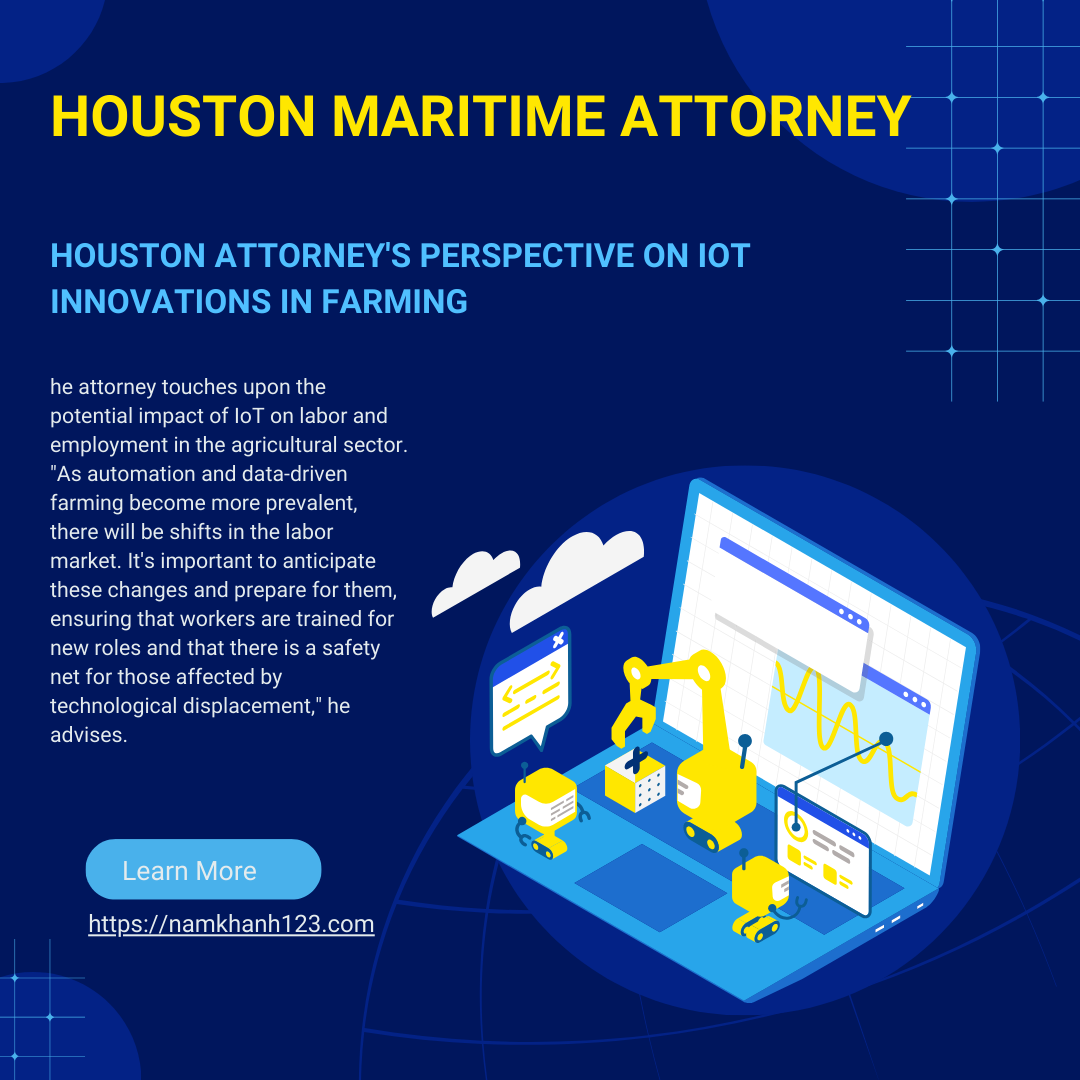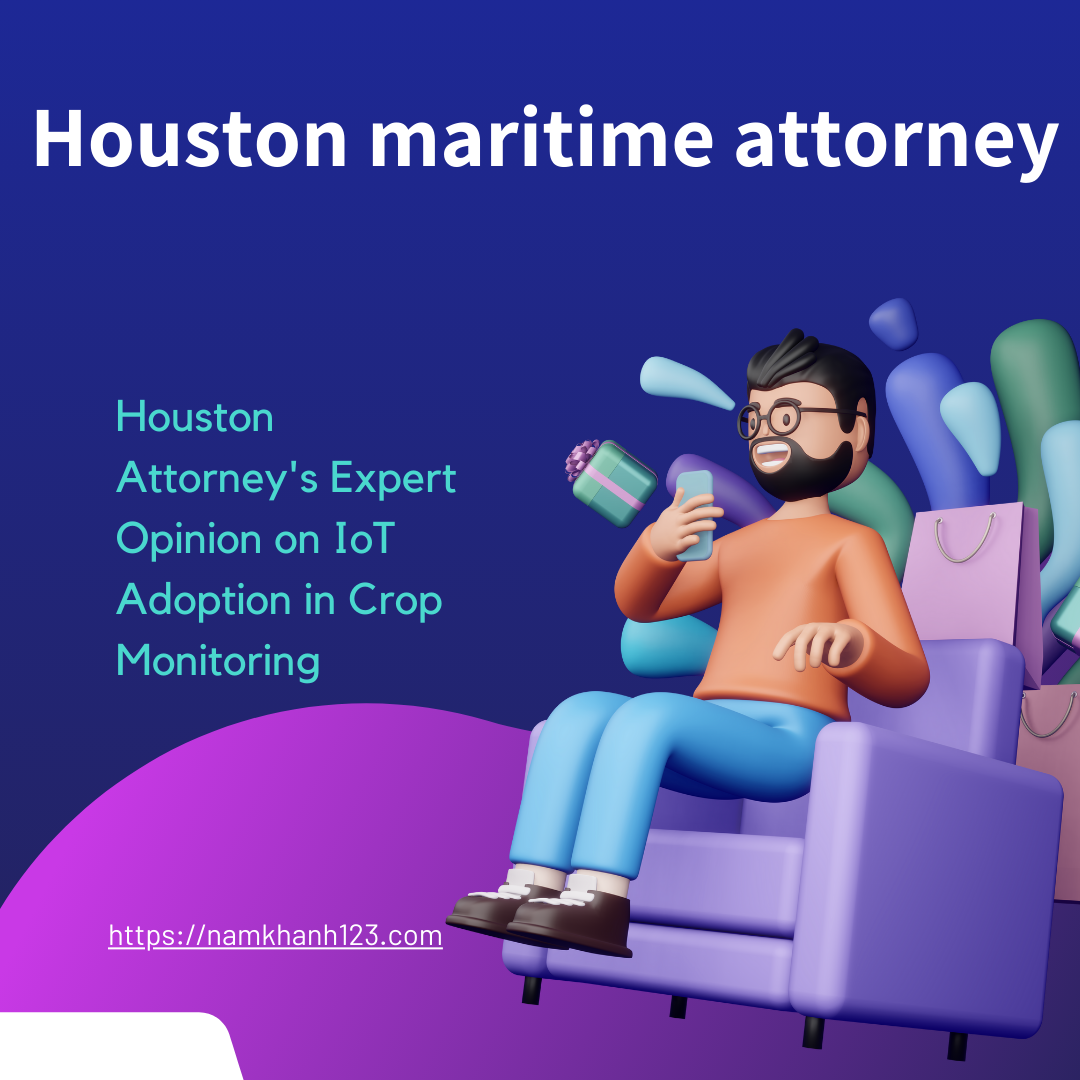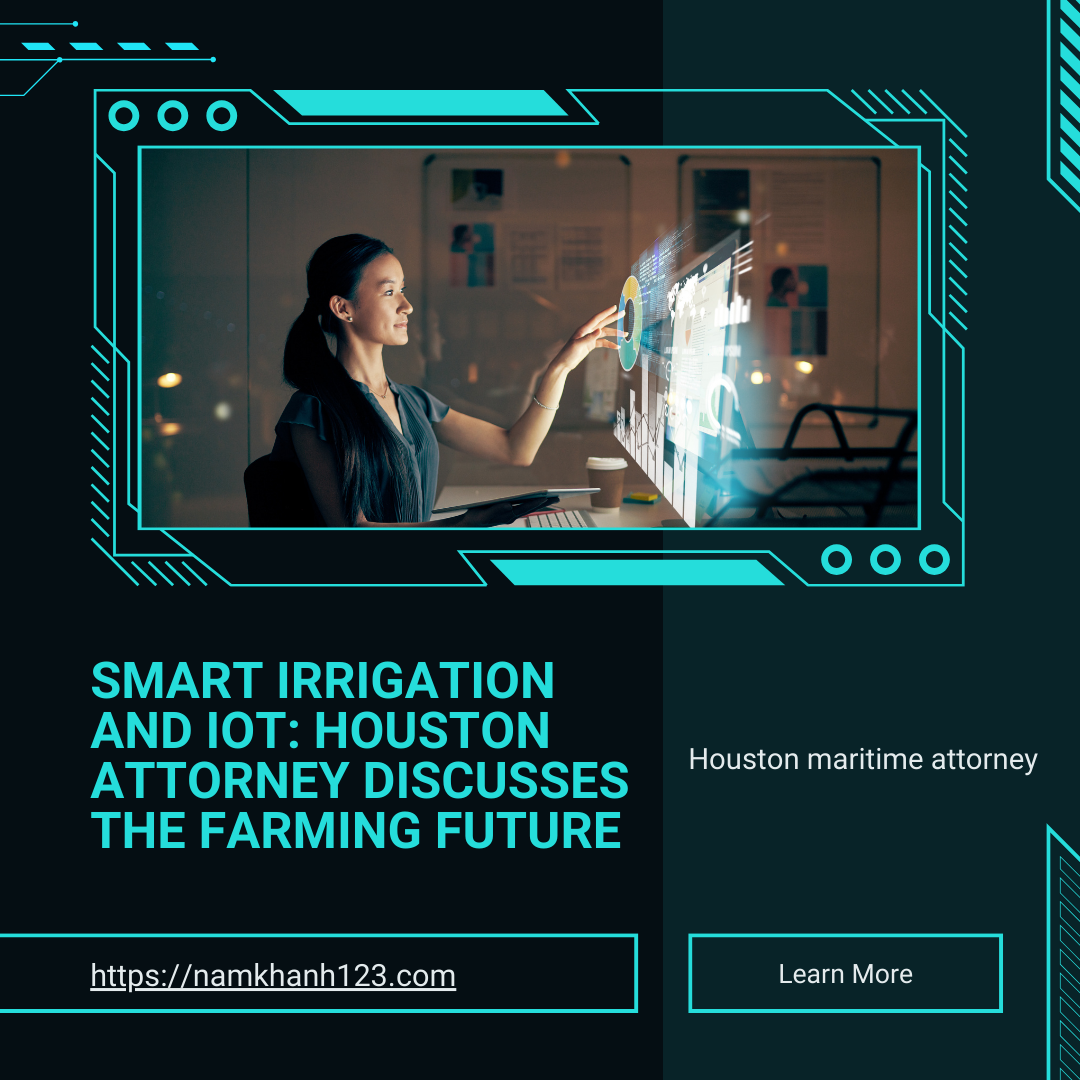In an insightful exploration of the intersection between technology and agriculture, a Houston-based attorney specializing in agricultural and technology law shares his perspective on the groundbreaking impact of the Internet of Things (IoT) on modern farming practices. This article offers a detailed analysis of the legal, ethical, and operational implications of IoT innovations in the agricultural sector, providing readers with a comprehensive understanding of this dynamic field.
The Advent of IoT in Agriculture
The attorney begins by painting a picture of the agricultural landscape transformed by IoT innovations. “IoT technologies have ushered in a new era in farming, one where precision and efficiency are not just goals but realities. Through sensors, drones, and data analytics, farmers are now equipped to make more informed decisions that lead to increased productivity and sustainability,” he states.
Legal Considerations in the IoT Era
A significant focus of the discussion is on the legal considerations that come with the adoption of IoT in farming. “As with any technological advancement, the integration of IoT in agriculture brings a plethora of legal issues to the forefront, including data privacy, intellectual property rights, and regulatory compliance. It’s imperative for farmers and tech developers to understand and navigate these legal landscapes to protect their operations and innovations,” the attorney advises.
Intellectual Property and Innovation
The attorney then delves into the realm of intellectual property, emphasizing its importance in the context of IoT in agriculture. “Innovations in IoT technology often involve significant research and investment. Understanding and protecting intellectual property rights is crucial for encouraging continued innovation and ensuring that inventors reap the benefits of their creations,” he explains.
Data Privacy and Security Concerns
With the vast amount of data generated by IoT devices, the attorney highlights the critical issues of data privacy and security. “Farmers and technology providers must be vigilant in protecting the data collected. This means not only complying with privacy laws but also implementing robust security measures to prevent breaches that could lead to significant financial and reputational damage,” he cautions.
Ethical Implications and Social Responsibility
The article also touches on the ethical implications and the need for social responsibility in the adoption of IoT in farming. “While IoT can dramatically improve efficiency and yield, it’s essential to consider its impact on labor, community, and the environment. Sustainable and ethical practices should be at the heart of all IoT implementations in agriculture,” the attorney suggests.
Future Trends and Legal Preparedness
Looking ahead, the attorney discusses the future trends in IoT and agriculture, emphasizing the need for legal preparedness. “As IoT continues to evolve, so will the legal challenges. Farmers, tech developers, and legal professionals must stay informed and prepared to address these issues proactively. Continuous education and consultation with legal experts are key to navigating the future successfully,” he concludes.
Navigating Regulatory Changes and Compliance
The attorney further underscores the importance of staying abreast of regulatory changes in the agricultural sector. “As IoT technology advances, so too do the regulations that govern its use. Farmers and technologists must be vigilant and adaptable to these changes to ensure continuous compliance and to safeguard their operations,” he notes. Understanding the complexities of agricultural law, especially as it pertains to technology, is crucial for a seamless integration of IoT solutions.
Balancing Innovation with Traditional Practices
He also discusses the need to balance innovation with traditional farming practices. “While IoT offers exciting new avenues for efficiency and productivity, it’s important to respect and integrate traditional farming knowledge. This balance ensures that technology serves as a complement to, rather than a replacement for, the time-honored wisdom of seasoned farmers,” the attorney suggests.
Encouraging Collaboration for Broader Benefits
Emphasizing the power of collaboration, the attorney encourages partnerships between legal experts, agricultural professionals, and technologists. “The future of sustainable and efficient farming lies in our ability to work together. Legal professionals can provide the framework for compliance and intellectual property protection, while farmers and technologists can drive innovation and practical application. Together, these collaborations can lead to more holistic and effective IoT solutions in agriculture,” he states.
Advocating for Access and Equity
The article also addresses the issue of access and equity in the adoption of IoT in agriculture. “It’s essential that these technologies are accessible to all farmers, including smallholders and those in developing regions. Legal frameworks and policies should aim to ensure that the benefits of IoT in farming are distributed equitably, and that all farmers have the opportunity to participate in and benefit from these innovations,” the attorney advocates.
Preparing for the Impact on Labor and Employment
The attorney touches upon the potential impact of IoT on labor and employment in the agricultural sector. “As automation and data-driven farming become more prevalent, there will be shifts in the labor market. It’s important to anticipate these changes and prepare for them, ensuring that workers are trained for new roles and that there is a safety net for those affected by technological displacement,” he advises.
Conclusion
“Houston Attorney’s Perspective on IoT Innovations in Farming” reiterates the transformative potential of IoT in agriculture while emphasizing the need for careful legal, ethical, and practical considerations. This article serves as a call to action for informed and responsible adoption of technology, advocating for a future where IoT not only enhances agricultural productivity but also contributes to a more sustainable, equitable, and informed farming industry.



